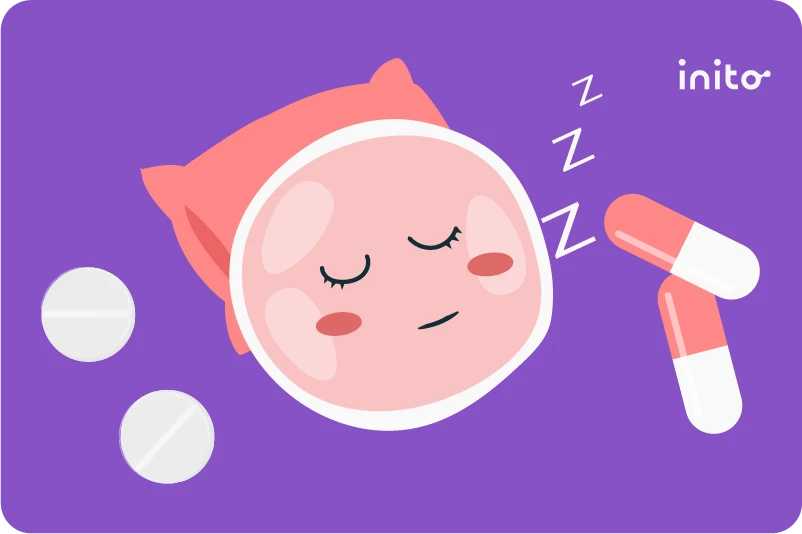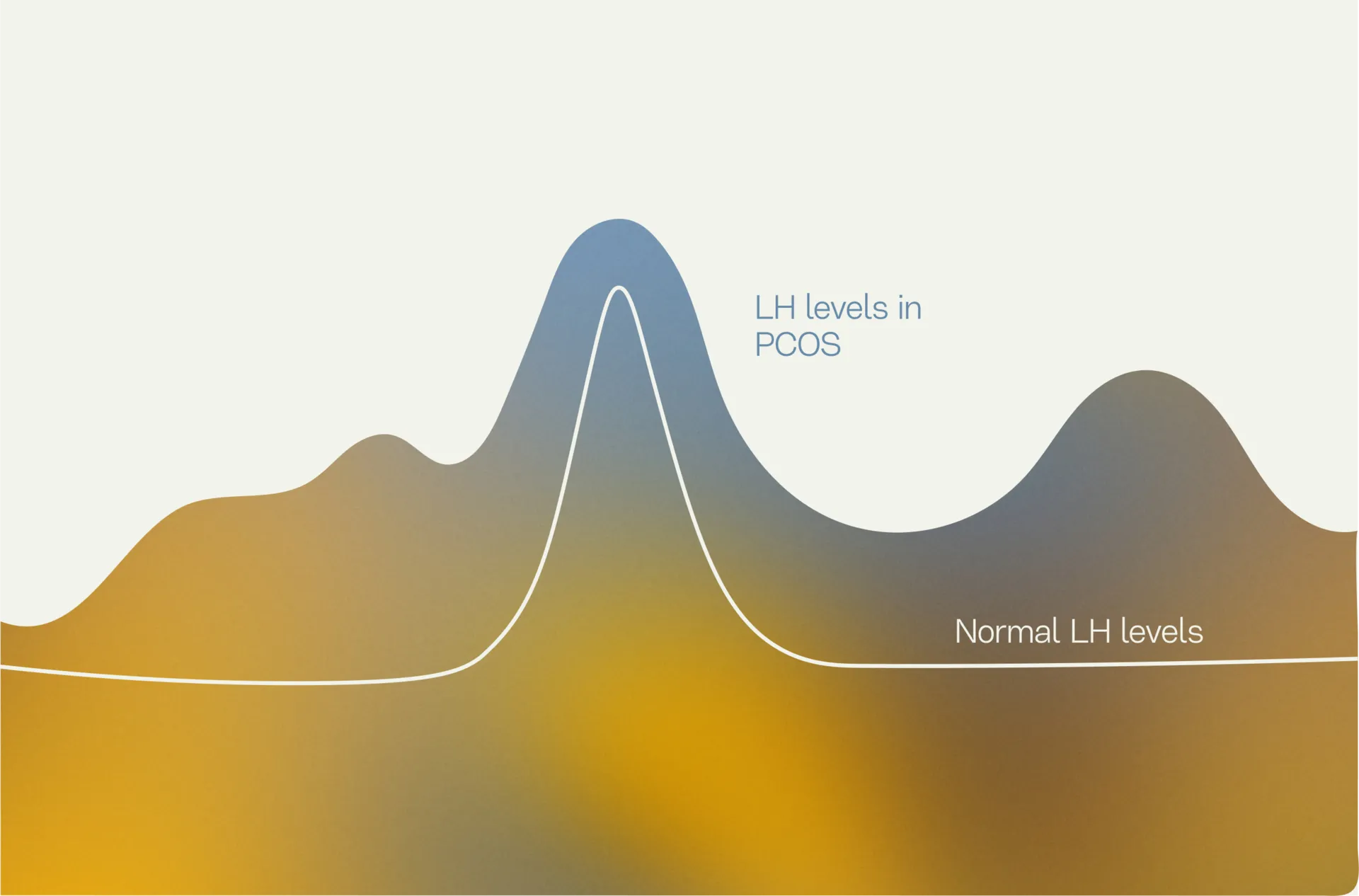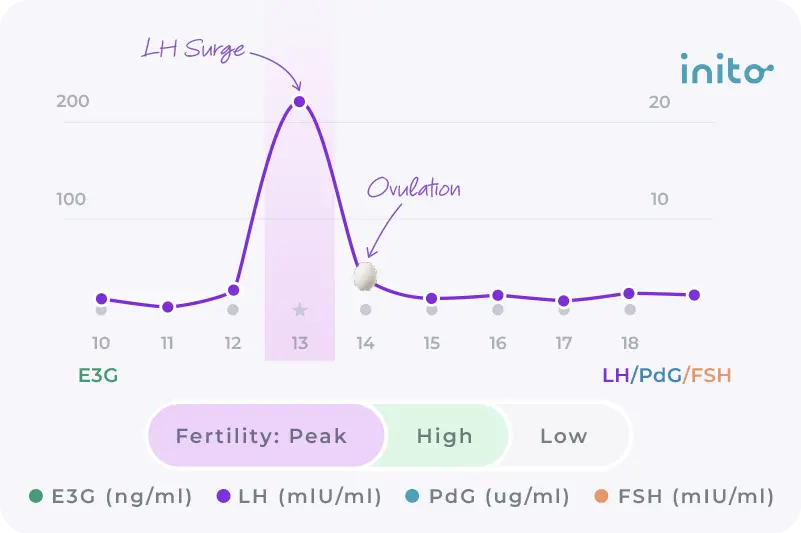Content table
Still exploring natural ways to boost your fertility? Then, this blog is just for you!
Here, we’re diving into magnesium and inositol supplements that are getting a lot of buzz for their potential to improve both your fertility and sleep.
Key Takeaways
- Can you take magnesium and inositol together? Absolutely! They work well together to support your fertility journey.
- Magnesium’s role in fertility: It helps balance hormones, regulate stress, and improve blood sugar—essential for reproductive health.
- Inositol for fertility: It’s great for balancing insulin levels, improving menstrual regularity, and supporting healthy ovarian function.
- Combined benefits: When taken together, they complement each other by addressing insulin sensitivity, hormone balance, and stress, all of which play key roles in fertility.
- Additional perks: Magnesium can also help with sleep and support better rest, which is important when you’re trying to get pregnant!
Sometimes, your body just needs a little extra support from nature to get things flowing! Give your body the support it deserves for a healthier, happier future!
Can I Take Inositol and Magnesium Together?

If you’re trying to conceive, you might be wondering if you can combine supplements like inositol and magnesium.
The answer is a big yes, as they could be your new best friends.
Not only is it safe, but combining magnesium and inositol could be a powerful step in your fertility journey!
Here’s why:
- Inositol regulates insulin and supports healthy ovarian function. It also balances hormones and improves egg quality.
- Magnesium deals with stress reduction, improved sleep quality, and overall hormone regulation, all of which are key factors for a healthy menstrual cycle and fertility.
But First, Why Does Magnesium Matter for My Fertility?

Let’s break it down:
Magnesium is a bit of a fertility superhero—it’s particularly helpful when you’re dealing with:
- Menstrual cramps
- Mood swings
- Premenstrual syndrome (PMS)
- Imbalance estrogen & progesterone levels
- Insulin resistance
- PCOS
Breathe, relax, and let stress go!
Magnesium is often called the “relaxation mineral” — your body’s natural stress-buster.
- High stress can really mess with your fertility, so having magnesium to help relax your muscles and calm your mind is super important.
- And guess what? It also helps your body produce melatonin, the hormone that’s key to a good night’s sleep, which is also essential for fertility.
Healthy hormones, happy you
Magnesium is involved in over 600 cellular processes in your body, which means it plays a huge role in keeping everything, including your hormones, in balance.
- For women, it helps regulate estrogen and progesterone levels, two of the most important hormones for fertility.
- For men, magnesium supports testosterone levels, which are crucial for sperm production.
Healthy blood sugar = healthy fertility!
If you have polycystic ovary syndrome (PCOS), one of the biggest fertility concerns is insulin resistance.
- Magnesium can help reduce insulin resistance, making it easier for your body to maintain normal hormone levels and improve your chances of conceiving.
- When insulin is in check, it helps regulate blood sugar, keeping everything running smoothly.
PCOS support
If you’re struggling with PCOS, magnesium can be a game-changer.
- It helps reduce hyperandrogenism (high levels of male hormones like testosterone), which can cause issues like acne and irregular cycles.
- By balancing your hormones, magnesium may support more regular ovulation and improve your chances of pregnancy.
Magnesium and male fertility
Men, don’t worry—magnesium’s got your back too!
Studies have shown that magnesium is essential for testosterone production and sperm quality.
One study even found that magnesium supplementation could help improve sperm count and motility, which can boost fertility for men trying to conceive.
On the Other Hand, How Beneficial Is Inositol for My Reproductive Health?

Inositol is a key regulator of hormones that affect ovulation and fertility. It can help deal with:
- PCOS
- Anxiety and stress
- Sleep disturbances
- Ovulatory disorders
PCOS
If you’re managing PCOS, inositol can help improve menstrual regularity by supporting ovulation.
Reduced anxiety and stress
Balancing your hormones isn’t just about the physical side—it’s mental, too. Inositol helps balance neurotransmitters, like serotonin, which can help reduce anxiety.
Better sleep
Though it’s not its primary job, inositol also plays a role in converting serotonin to melatonin, which helps you get a good night’s sleep. Better sleep means less stress, which supports your fertility journey.
Ovulation
Some studies have found that inositol may help you ovulate more regularly. If your cycles have been a bit unpredictable, it could help get them back on track.
Find this useful too: How Soon After Ovulation Can You Test For Pregnancy?
So, How Much Can I Add to My Daily Routine?
Here are the recommended doses for your daily routine to get the most out of magnesium and inositol.
- Aim for 243 to 973 mg daily of magnesium, typically in the evening, to help with relaxation.
- For inositol, a typical dose is up to 4 grams per day, usually split into two doses, one in the morning and one at night.
But always check with your doctor for personalized recommendations!
How Can I Achieve a Healthy Pregnancy?

We’ve jotted down how to create a more fertile environment, giving you the best chance when you’re trying to conceive!
- Better hormone balance
Taking care of your overall health can do wonders for fertility. When you’re eating well, staying active, and managing stress all help regulate the hormones. That way, your body’s in better shape to support a healthy pregnancy. - Keep your immune system strong
A well-nourished body supports a strong immune system, helping to protect your reproductive organs from infections and inflammation. This ensures a healthy environment for conception and pregnancy.
Nutrients like vitamins, minerals, and antioxidants strengthen the body’s defenses, making it easier to maintain overall reproductive health. - Find your balance
Whether you’re underweight or overweight, balancing it can boost ovulation and improve egg quality, making it easier to conceive. - Get that blood pumping
Regular exercise boosts blood flow throughout the body, including the reproductive organs. This enhanced circulation helps deliver oxygen and nutrients to these areas, supporting their function and overall health.
Improved blood flow can help regulate hormones, reduce stress, and balance reproductive cycles, which are important for conception and maintaining a healthy pregnancy. - Track your hormones
Try using a fertility monitor like Inito that helps track your fertility with confidence.
Inito helps track the four key hormones like luteinizing hormone (LH), estrogen, follicle-stimulating hormone (FSH), and PdG, all on a single test strip to help you pinpoint your fertile window and also confirms if you’ve ovulated.

FAQs
Yes! Magnesium and inositol are safe in most situations but you should contact your healthcare professional to ensure that it is appropriate for your individual health needs, especially if you are pregnant, breastfeeding, or have any underlying medical concerns.
We recommend you take magnesium and inositol with meals to improve absorption and reduce stomach pain. Always follow the instructions on your supplements or your doctor’s advice for optimal timing.
Taking magnesium and inositol together is safe and well-tolerated for most people. Some people may experience a bit of stomach upset or diarrhea, especially if they take too much magnesium at once.












